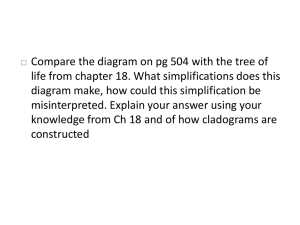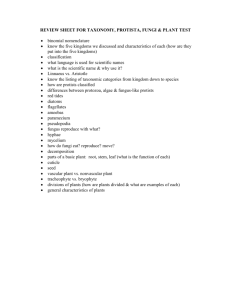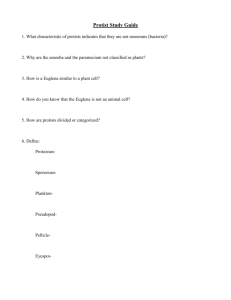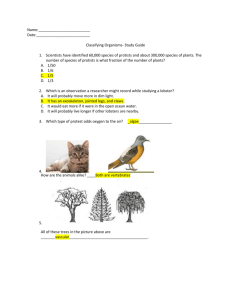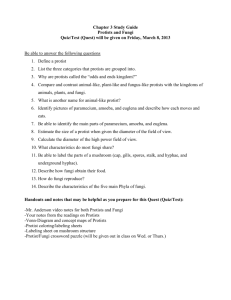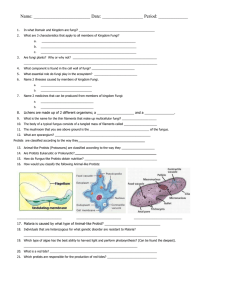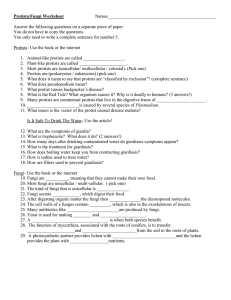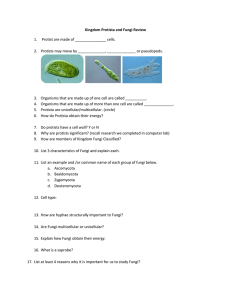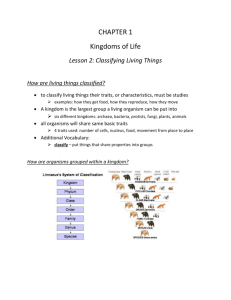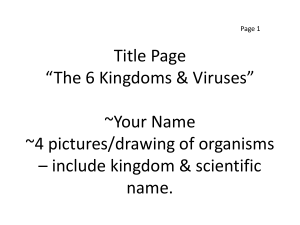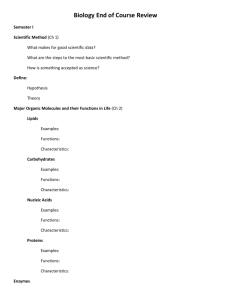File
advertisement
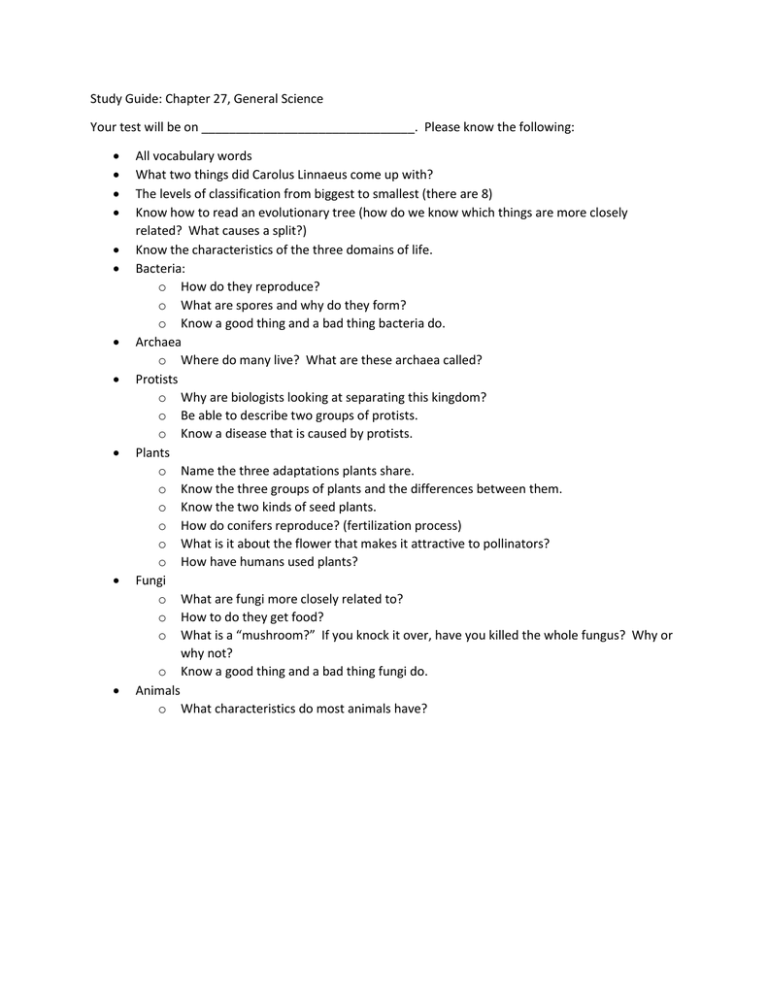
Study Guide: Chapter 27, General Science Your test will be on _______________________________. Please know the following: All vocabulary words What two things did Carolus Linnaeus come up with? The levels of classification from biggest to smallest (there are 8) Know how to read an evolutionary tree (how do we know which things are more closely related? What causes a split?) Know the characteristics of the three domains of life. Bacteria: o How do they reproduce? o What are spores and why do they form? o Know a good thing and a bad thing bacteria do. Archaea o Where do many live? What are these archaea called? Protists o Why are biologists looking at separating this kingdom? o Be able to describe two groups of protists. o Know a disease that is caused by protists. Plants o Name the three adaptations plants share. o Know the three groups of plants and the differences between them. o Know the two kinds of seed plants. o How do conifers reproduce? (fertilization process) o What is it about the flower that makes it attractive to pollinators? o How have humans used plants? Fungi o What are fungi more closely related to? o How to do they get food? o What is a “mushroom?” If you knock it over, have you killed the whole fungus? Why or why not? o Know a good thing and a bad thing fungi do. Animals o What characteristics do most animals have? o Match the characteristic to the animal group: Sponges Exoskeletons, segmented bodies, bendable Cnidarians joints (lobster) Flatworms Parasitic and nonparasitic, ribbonlike Roundworms Sedentary, pores to allow water through body Arthropods to obtain food Mollusks Small, suckerlike tube feet allow movement Annelids Worms that are segmented, muscles that go Echinoderms around and up and down body Small, slender-bodied worms with muscles that run from head to tail Soft-bodied animals, mostly with protective shells Catch prey with stinging tentacles, go through “polyp” and “medusa” stages Explain coral bleaching and why it happens Be able to describe three kinds of chrordates Know the difference between ectotherm and endotherm Be able to explain how birds can fly Know the difference between a virus and a prion
